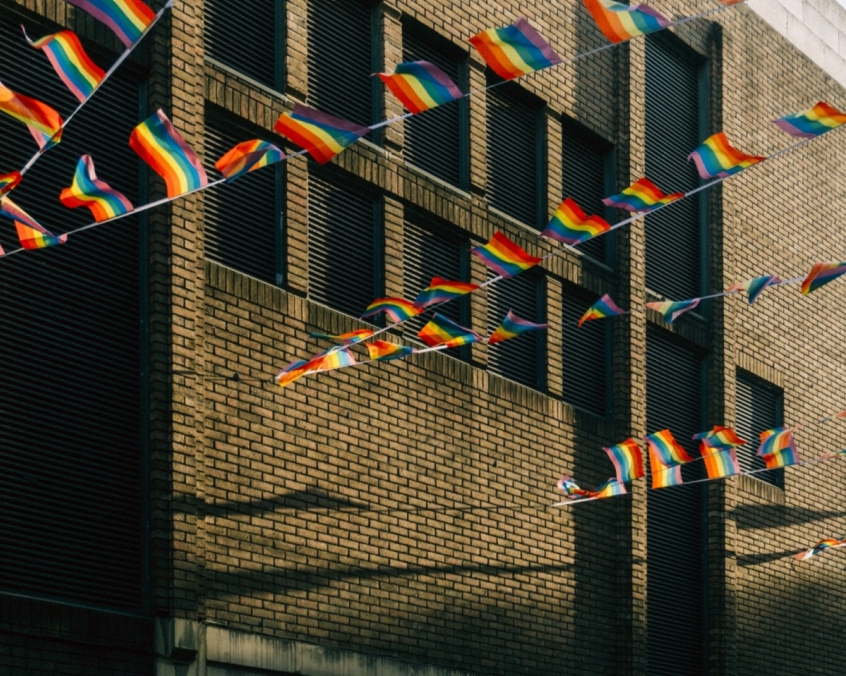
The Christian Institute is urging the Government to protect religious freedom after a debate on conversion therapy in Parliament.
Prayer was mentioned several times in the debate, which was held in response to a petition demanding that the Government criminalise conversion therapy and make it illegal to send people overseas for it. The petition was signed over 256,000 times.
Dame Angela Eagle said: "Being told by faith leaders or your family that you are sinful, evil, and disordered for being yourself creates self-loathing and trauma that only the strongest can survive.
"Being told to pray harder to change and to question your innermost feelings and thoughts, and being taught to hate yourself—none of that should be legal.
"Conversion therapy certainly causes untold damage and trauma for those who encounter it.
"Many survivors need specialist help because of the damage that that unethical and degrading process has caused. The Government must end the delay and bring the ban forward now."
SNP MP Alyn Smith claimed that "the only people who are speaking in defence of conversion therapy are quacks, bigots and bullies".
"They need to be called out for what they are, and their dreadful activities and consequences criminalised," he said.
SNP MP John Nicholson also claimed that those practising or supporting conversion therapy were "bigots".
"'Pray away the gay,' cry some religious groups, who somehow see no contradiction with the command that thou shalt love thy neighbour," he said.
"People who hold out the promise of conversion are cruelly targeting the most vulnerable. It is abuse."
Elliot Colburn MP, who led the debate, said conversion therapy ranged "from pseudo-psychological treatments and aversion therapies to practices that are religiously based, such as purification or fasting".
"At the most extreme, there has been evidence that this practice can also involve physical and sexual violence, including so-called corrective rape," he said.
Shadow Foreign Minister Stephen Doughty claimed that it was not possible for people to give consent to conversion therapy and specifically criticised the Evangelical Alliance's biblical and pastoral responses to homosexuality.
The guidance says: "We encourage evangelical congregations to welcome...lesbians and gay men. However, they should do so in the expectation that they, like all of us who are living outside God's purposes, will...see the need to be transformed".
It also states that there is a need for "pastoral care during this process and after a person renounces same-sex sexual relations."
Mr Doughty claimed: "That could be used as a cover for some very dangerous practices."
Equalities Minister Kemi Badenoch said the Government was "committed to ending conversion therapy in the UK".
She said the Government did not want to prevent LGBT people from seeking support "on their own terms" and would "not dictate what is legitimate spiritual guidance", but added that it would "not tolerate the use of harmful coercive practices under the guise of spiritual support".
"The Government have been clear that we do not intend to stop those who wish to seek spiritual counselling as they explore their sexual orientation, but there will be cases when a line is crossed, where someone is actively seeking to change another's sexual orientation—an innate aspect of their personal identity—via coercion under the guise of spiritual support," she said.
She continued: "People will always have the right to seek support from anyone and have conversations to rationalise and understand their own identity. We will not restrict the right to seek counsel when needed, but that does not mean that we will tolerate the use of conversion therapy described in the debate.
"We are working to understand the impacts on wider rights and freedoms of any Government action to tackle conversion therapy.
"The legal landscape is complex, and we want to ensure that we get our proposals absolutely right."
The Christian Institute is one of a number of groups speaking out against a conversion therapy ban over concerns that it could undermine religious freedom.
Ciarán Kelly, the Christian Institute's Deputy Director for Communications, expressed fears that pastors could face prosecution if they offer spiritual support to someone struggling with unwanted same-sex attraction.
"It is deeply worrying to see the level of ignorance of the beliefs and practices of mainstream Christianity on display from some of these MPs," he said.
"Of course we believe people should be protected from quack therapists and charlatan preachers. Most of these practices are already illegal and we would urge the Government to ensure the law is applied properly.
"But there must also be room for the preaching of God's Word and for believers to receive prayer and pastoral support, whatever temptations they are facing.
"A pastor or church should not face prosecution if a gay man or woman attends church, comes to faith and seeks help in following Christ's teaching on sexual ethics."
John Stevens, National Director of the Fellowship of Independent Evangelical Churches, has also defended religious freedom following the debate.
He wrote on Twitter: "We need to fight for freedom to continue ordinary gospel pastoral practice."
Following the debate, gay Anglican campaigner Jayne Ozanne announced she was resigning from the advisory panel, telling ITV News there had been "a lack of engagement" by both Ms Badenoch and Minister for Women and Equalities Liz Truss.













